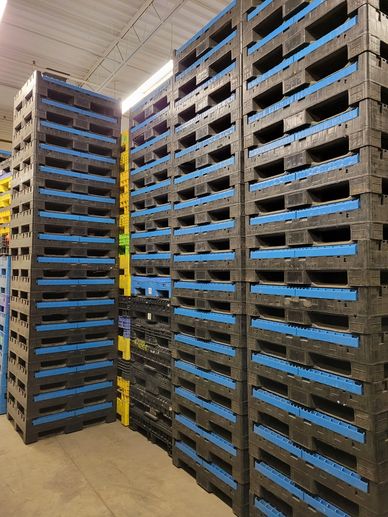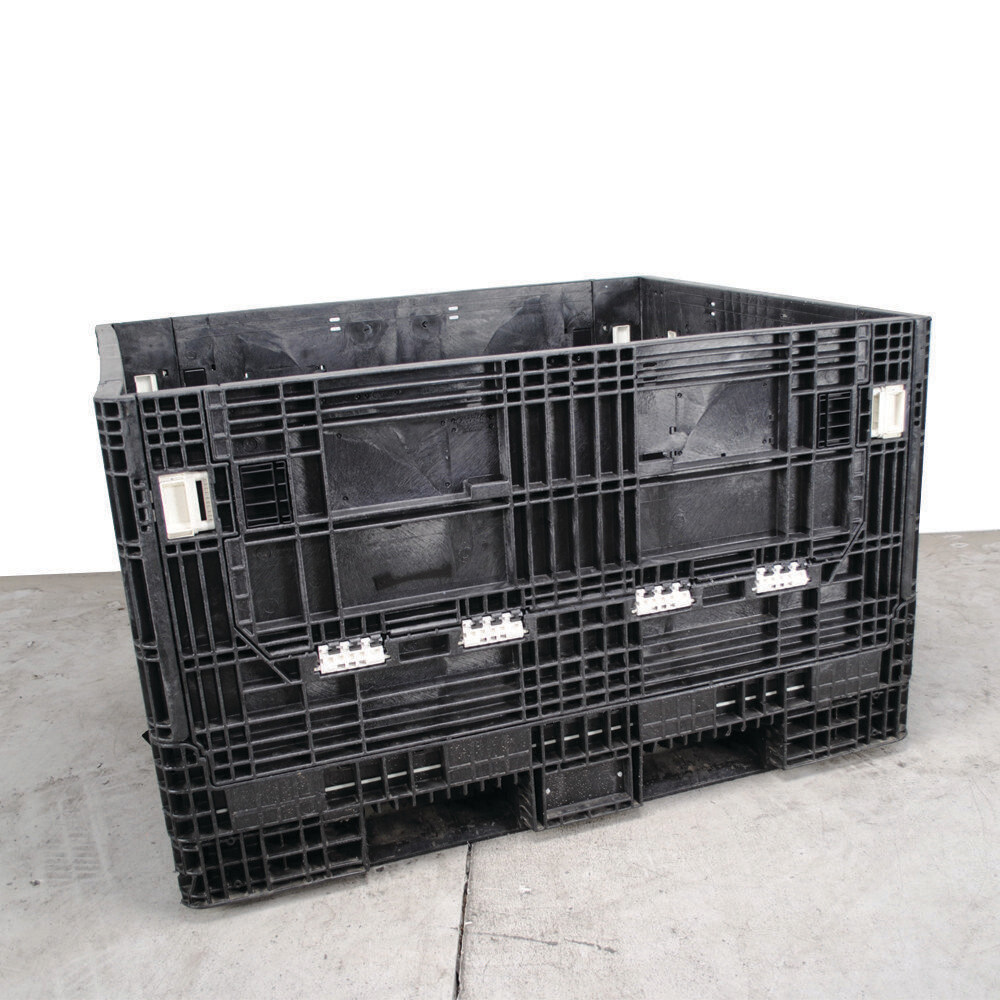Exactly How Mass Containers Can Boost Efficiency in Your Product Packaging Workflow
Bulk containers play a crucial role in optimizing packaging operations. Their style enables much better use upright room and promotes organized stock administration. This performance results in decreased product replenishment frequency and lower labor expenses. Additionally, the durability of these containers reduces item damages. As organizations look for means to boost their procedures, comprehending the diverse advantages of mass containers becomes important. What other benefits might they give the table?
Structured Storage Solutions
As companies seek to optimize their procedures, streamlined storage options have ended up being necessary for improving product packaging efficiency. Reliable storage not only saves area however likewise facilitates quicker access to products, which is important in fast-paced production settings. Mass containers, created for simple stacking and organization, considerably decrease the intricacy of storage space systems. They allow companies to optimize upright area while reducing the footprint required for supply.
Furthermore, these containers often include ergonomic layouts that simplify dealing with and transportation, reducing the danger of injury and improving operations. By settling products wholesale containers, firms can lower the regularity of restocking and improve their supply chain processes. Overall, the application of efficient storage services cultivates a more well organized workspace, resulting in raised performance and reduced functional expenses. Via thoughtful style and calculated use bulk containers, services can attain notable renovations in their packaging operations.

Waste Reduction and Sustainability
While the search of effectiveness frequently drives packaging decisions, waste reduction and sustainability have arised as essential considerations in modern procedures. Business significantly recognize that embracing bulk containers can significantly lessen product waste. These containers typically use less product packaging material than typical approaches, resulting in a smaller carbon footprint.
Moreover, bulk containers can be recycled multiple times, which better reduces the need for single-use product packaging and reduces total waste getting in landfills. Their style commonly permits much easier recycling processes, lining up with sustainability objectives.
In addition, companies that prioritize waste decrease can improve their brand name reputation, appealing to environmentally conscious customers. By implementing bulk containers, services not only simplify procedures but also add favorably to environmental stewardship. This dual advantage of functional efficiency and sustainability positions companies positively in an open market progressively focused on environment-friendly techniques.
Boosted Production Line Effectiveness

Implementing bulk containers on setting up lines considerably improves performance by streamlining the handling and transport of materials. By utilizing mass containers, makers can minimize the regularity of material replenishment, enabling workers to concentrate on assembly tasks instead of constant supply management. This results in less disruptions and a smoother workflow, eventually enhancing performance.
Additionally, mass containers are designed for easy combination with automated systems, better enhancing the setting up process. Their standard shapes and sizes promote much better organization, allowing employees to situate and gain access to products swiftly. This decrease in search time adds to a more fluid manufacturing environment.

Cost Financial Savings and Boosted Profit Margins
Remarkable expense savings can be understood via the adoption of bulk containers in packaging processes. By decreasing the need for several smaller sized plans, companies can reduce material expenses especially. Bulk containers usually need much less packaging material generally, resulting in lower expenses on supplies. In addition, the performance of bulk handling decreases labor costs related to packaging and unpacking, better boosting cost savings.
Less journeys to vendors and lowered transportation prices are additionally crucial benefits, as bulk containers permit boosted product ability per shipment. This higher volume not only reduces down on shipping costs however likewise maximizes storage space within facilities, causing enhanced stock administration.
Additionally, the resilience of bulk containers commonly translates to lower damages prices throughout handling and transport, protecting item stability and minimizing waste. Jointly, these variables add to better profit margins, making bulk containers an economically advantageous option for organizations looking for efficiency in their packaging procedures.
Versatility Across Industries
Bulk containers offer impressive versatility throughout different sectors, making them a valuable asset past simply cost financial savings. In the food and drink market, these containers promote the safe transport and storage space of large amounts of active ingredients, enhancing effectiveness in manufacturing lines. In drugs, bulk containers guarantee conformity with rigid hygiene standards while accommodating the mass handling of resources. The chemical market additionally benefits, as these containers withstand severe compounds and protect against contamination, supporting safe operations. refurbished bulk containers. Furthermore, the agricultural field utilizes mass containers for transporting fertilizers and grains, minimizing and maximizing logistics waste. Their adaptability reaches production, where mass containers improve assembly procedures and decrease the requirement for excessive product packaging. This cross-industry functionality not just boosts functional efficiency but likewise promotes sustainability through decreased product packaging waste, highlighting the indispensable role bulk containers play in read more contemporary supply chains
Regularly Asked Inquiries
How Do Mass Containers Effect Worker Safety And Security in Product Packaging Procedures?
Bulk containers significantly enhance worker security in product packaging procedures by minimizing hands-on handling, lessening injury threats, and promoting ergonomic methods. Their layout helps with safer transport and storage space, eventually producing an extra safe work atmosphere for all workers.
What Materials Are Mass Containers Usually Made From?
Bulk containers are normally made from resilient materials such as high-density polyethylene, steel, polypropylene, or wood - used bulk containers. These products give strength, resistance to environmental elements, and suitability for different materials, making sure efficient and safe transport of goods
Can Bulk Containers Be Customized for Certain Products?
Yes, bulk containers can be tailored for certain products. Manufacturers commonly customize measurements, products, and features to satisfy unique needs, ensuring excellent protection and performance during storage space and transport of different goods.
Just How Do Mass Containers Affect Transportation Logistics?
Mass containers simplify transport logistics by making best use of freight room, minimizing the number of journeys needed, and decreasing handling expenses (used bulk containers). Their standard dimensions promote effective packing and dumping, inevitably causing boosted functional performance throughout the supply chain
What Is the Life Expectancy of Mass Containers in Regular Usage?
The life expectancy of bulk containers in normal usage typically ranges from five to 10 years, relying on material high quality, managing practices, and ecological conditions. Appropriate upkeep can significantly expand their use and efficiency.
Applying mass containers on assembly lines substantially enhances performance by improving the handling and transportation of materials. Bulk containers often require much less product packaging product in general, resulting in lower expenses on materials. In pharmaceuticals, mass containers ensure compliance with rigorous hygiene requirements while suiting the bulk handling of raw materials. Their flexibility extends to production, where bulk containers enhance assembly procedures and decrease the need for too much packaging. Mass containers significantly enhance employee safety and security in product packaging operations by decreasing manual handling, minimizing injury risks, and advertising ergonomic techniques.